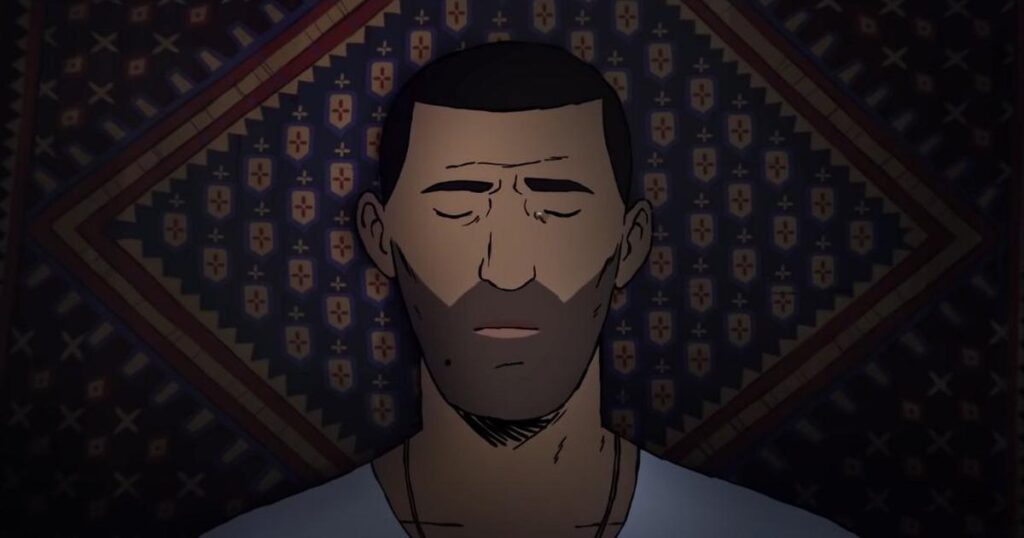If you start making the easy choices, you don’t really challenge yourself. And when you don’t challenge yourself, you don’t really use your creativity.
Welcome to Hurwitz.TV’s Directors Interview Series, where we chat with some of the most influential filmmakers from all over the world.
In this series, you’ll have the opportunity to gain profound insights from the minds and creative journeys of these cinematic storytellers. Our goal is to explore the art of filmmaking, discover the inspirations and motivations that drive these directors, and delve into the captivating stories behind their remarkable works. From seasoned veterans to emerging talents, we talk about their artistic influences, memorable experiences, and the challenges they’ve faced along the way.
Today, I had the privilege to talk to ‘Flee’ director and two-time Oscar nominee Jonas Poher Rasmussen. Flee is a Danish animated documentary film that made history at the 2021 Academy Awards, being the first film in history to be nominated for Best Animated Feature, Best Documentary Feature, and Best International Feature – all in the same year.

Dennis: Thank you Jonas for joining me! To kick things off, can you share the story of you wanting and deciding to become a filmmaker? What drove you to pursue this career path?
Jonas: The funny thing is that I didn’t think I was going to be a filmmaker. For a long time, I really thought that I was going to work in radio. I have a background in radio. Then one day, around 20 years ago, my grandfather passed away, and he was a really well-known poet here in Denmark. As he passed, the entire family gathered around in his house not only to say goodbye but also to do personal things that one has to do when someone passes away. And one thing we needed to do was find his will, so we went around his house and tried to find it but we couldn’t. But I found these old video tapes that he had – short films that he had done himself back in the 60s and 70s, very esoteric, black-and-white art house films. I sat down on his couch and watched these films, and I realized that I didn’t really know my grandfather. I became very curious, and I decided to make a film about him.
And that was my first film and kind of my way of understanding that I really didn’t know him; I just knew him as my grandfather who always had candy in his pocket, and some change that I could have, but I really didn’t know his story. So that really started my interest in stories that people have inside of them.
Dennis: What was the greatest piece of advice given by a mentor that shaped the artist that you are today?
Jonas: There are 3 that I was given that I really took with me and I really used. One is that you should never make the easy choice. If you start making the easy choices, you don’t really challenge yourself. And when you don’t challenge yourself, you don’t really use your creativity. You need to try things out and you need to do what’s right and not just take the easy choice. When you’re looking for a subject for a film or who to film it with, always be ambitious and always try to challenge yourself because that’s when you really use your creativity.
Another one, which sounds really banal, is that you should always trust your inner voice. When you’re creative, you have to trust what you can bring along and has value in itself. And you need to really be honest with your vision because that’s really what makes you unique as a creative storyteller.
And the last one, which is really boring, but it’s been really crucial to my career: if you want to have the freedom to do what you would like to do and to work on projects that are important to you, you need to live cheap, which means you shouldn’t buy a big house, an expensive car, or make big loans because if you need to earn a lot of money every month, it kind of limits your freedom, which means you need to do a lot of commercial work instead of doing projects that are important to you.
Dennis: Not boring at all – that makes complete sense! What about the movies and filmmakers that inspire you the most?
Jonas: I really enjoy films of filmmakers that really push the envelope and ones that surprise me where I feel like there’s a really distinct voice behind. Recently, I really loved Charlotte Wells’ Aftersun. It’s a beautiful film, and I thought it was the best film last year. And it’s so simple and it’s so subtly told about a dad and his daughter on a holiday in Turkey for a week. But it’s about so much more – time, mental illness, relationships, getting older. It’s a beautiful, beautiful film, and it’s told in a way that I hadn’t seen before. You can really tell it’s Charlotte Wells behind the storytelling.
Others would be Yorgos Lanthimos who just won in Venice for Poor Things. I really loved The Lobster and I look forward to watching his new film. Joachim Trier and Eskil Vogt, Norwegian filmmakers who did Oslo, 31st August, Reprise, The Worst Person in the World, and The Innocents – I really love their work. And someone like Michel Gondry, the French filmmaker who did – oh what’s the name of the film… Eternal Sunshine of the Spotless Mind!
Dennis: Thank you for mentioning Eternal Sunshine of the Spotless Mind, I really loved that film too! Now, let’s proceed to the filmmaking process itself. What are the most challenging and rewarding parts of making a movie?
Jonas: I think they’re the same. When you work in filmmaking and creatives, there are always problems. When you want to do something and you have a vision, getting there is a road faced with problems.
From day one, there will be problems you need to solve, and it’s frustrating and amazing at the same time. It’s frustrating when you have a problem, but then you need to use your creativity to solve it, and to me, that’s what creativity is all about. And not just in filmmaking, but in general – in the story of mankind. As frustrating as it is to have a problem, it’s just as rewarding to solve them – so it goes hand in hand. That’s what filmmaking is fundamentally about.

Dennis: You gained global recognition with your 2021 critically acclaimed film ‘Flee’, which earned several accolades, including 3 historic Oscar nominations – Best Animated Feature, Best International Feature, and Best Documentary – the first film ever to be nominated in all three of those categories. How would you describe that entire experience? And how did you feel that the film emotionally resonated with millions of people around the world?
Jonas: You know, Flee was basically a film that started out with Amin and me in my small flat in Copenhagen. At the beginning, we thought, hopefully, this will be a film that local audiences in Denmark will see, maybe half an hour or an hour tops. But then it was just an amazing journey, working in the film for 7 years. And then when it was finally done, to see it reach an audience across the globe, and hearing that his story resonated with a lot of people was just amazing. Especially for me, because Amin is an old, old friend of mine, and seeing him feel liberated and seen for the first time, and seeing that people could understand what he had been through – it was just a really rewarding experience, both on a personal and professional level.
And for Amin, he feels like he didn’t have a lot of stories that he could relate to growing up, so for him to be able to tell his story to millions of people out there who shared his experience was really important for him, and of course to me. And it’s been really amazing to travel around the world and see how people who shared his story relate to him, and also for people who didn’t have a refugee or queer background, and still related to the story and understood that this is not just about being a refugee or being queer – it’s about a fundamental human need to have a home, be safe, and be able to be who you are with everything that entails. We didn’t see it coming, and being on that journey for a bit more than a year was an amazing rollercoaster ride.

Dennis: What was your biggest “is this really happening” moment from that entire experience?
Jonas: There was A LOT. Being selected for Cannes and Sundance, then winning Sundance, and all the awards it got. But of course, you know, being in that train – the awards train in the US – and all of a sudden, hanging out and having conversations with filmmakers that I really admire, and sitting at a table one day with Steven Spielberg, George Lucas, Francis Ford Coppola… and Steven Spielberg turning saying he loved Flee, it’s just amazing. Talking to Guillermo del Toro, P.T. Anderson, and even people like Billie Eilish – it was just like “Oh my God. Is this really happening? Am I really here with all these people?” And of course, the ceremony was… in many ways, even though we didn’t win, it was a “is this really happening?” moment. And everything that happened, Will Smith, of course, I didn’t see that coming. It was just a weird, fun, amazing rollercoaster ride.
Dennis: Lastly, name a filmmaker or an actor you would love to collaborate with in the future and why.
I would really love to work with Riz Ahmed. We worked together a little bit on Flee, where he voiced the English version of Flee for Amin. It was such a pleasure to work with him, even though it was during the pandemic and it was online, but he’s such an amazing actor, person, and musician, and I just really hope we can have the chance to work together in person one day, and not just through Zoom.
Dennis: This has been incredible. I can’t tell you enough how appreciative I am of your time. Thank you so much for sharing your story!







